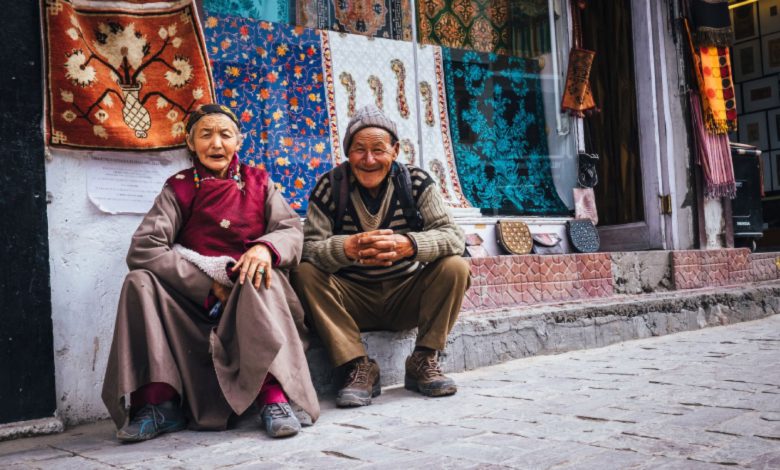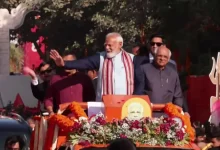
(By Our Correspondent)
New Delhi: The Union government has announced new reservation and domicile regulations for Ladakh on Tuesday, addressing persistent demands from the region’s residents for constitutional protection. The policy allocates 85 percent of government positions to Ladakhi locals.
Under the new domicile criteria, non-locals, including central government personnel stationed in the territory, must demonstrate continuous residence in Ladakh for 15 years starting from October 31, 2019, to qualify for domicile status.
The regulations also mandate that one-third of hill council positions be allocated to women representatives. The Union Territory will now recognize regional languages Bhoti and Purg alongside English, Hindi, and Urdu as official languages.
President Droupadi Murmu formally notified the Union Territory of Ladakh Reservation (Amendment) Regulation, 2025 on Tuesday. This amendment modifies the Jammu and Kashmir Reservation Act, 2004 as it applies to Ladakh, replacing the previous provision that limited local reservation to 50 percent.
The notification specifies that “total reservation percentage cannot surpass 85 percent, not including Economically Weaker Sections (EWS) quotas.”
President Murmu simultaneously approved three additional regulations: the Ladakh Official Languages Regulation, 2025; Ladakh Civil Services Decentralisation and Recruitment (Amendment) Regulation, 2025; and Ladakh Autonomous Hill Development Councils (Amendment) Regulation, 2025.
‘Immediate implementation needed’
Sajjad Kargili from the Kargil Democratic Alliance, who participated in negotiations between central authorities and Ladakh civil society organizations regarding regional demands, expressed approval of the government’s decision in conversation with ThePrint. He emphasized that authorities should promptly announce job openings to address the territory’s mounting unemployment crisis.
“We’ve consistently highlighted the unemployment problem, which represents an urgent crisis requiring immediate attention. Recruitment has been stagnant for five years. The UT administration now bears this responsibility. While we appreciate this decision, it represents only initial progress—actual ground-level implementation must commence,” Kargili informed ThePrint.
The detailed Rules for implementing these Regulations await notification, which will outline specific categories eligible for reservation benefits. Census data from 2011 indicates approximately 80 percent of Ladakh’s 2.74 lakh population belongs to tribal communities. Government job reservation in Ladakh now totals 95 percent—incorporating 10 percent for EWS—ranking among India’s highest reservation percentages.
‘Statehood demand persists’
When Ladakh became a Union Territory following Article 370’s revocation in 2019 and the former Jammu and Kashmir state’s division (which included Ladakh), local residents initially celebrated, having long criticized J&K leadership for discriminatory treatment and regional neglect.
Citizens anticipated improved governance, parliamentary representation, enhanced access to government funding and resources, and increased developmental focus. However, after the central government established Ladakh as a legislature-less UT, regional voices began demanding autonomy, employment opportunities, and protection for their territory and cultural heritage, culminating in widespread protests including activist Sonam Wangchuk’s highly publicized hunger strike last year.
Regarding modifications in the Ladakh Official Languages Regulation, 2025, Kargili acknowledged satisfaction with Purgi’s inclusion while expressing disappointment about excluding Shina and Balti languages. “The exclusion of Shina and Balti, predominantly spoken across Ladakh and Gilgit-Baltistan, is disappointing and warrants serious reconsideration,” he stated.
He noted that while these new policies address some broader regional expectations, Ladakhis’ principal concern remains achieving full statehood. “Our campaign for an independent public service commission, statehood status, Sixth Schedule inclusion, and separate parliamentary constituencies for Ladakh and Kargil will persist.”




